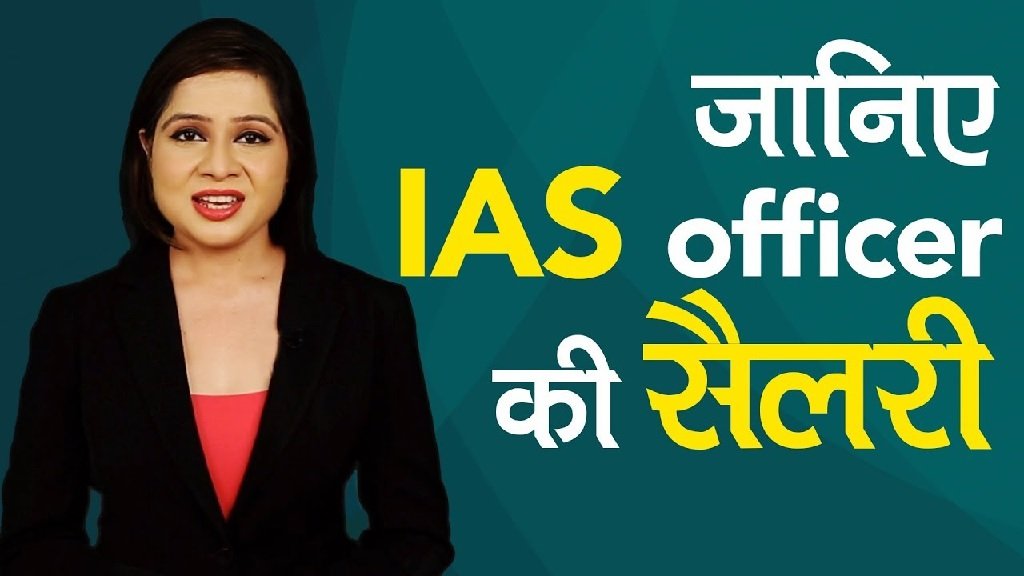The Indian Administrative Service (IAS) is one of the most prestigious and sought-after positions in the country. Every year, thousands of aspirants compete in the UPSC (Union Public Service Commission) exams to secure a spot in this elite service. While serving the nation is the primary motivation, the salary and benefits also attract candidates. This article will explore the salary of an IAS officer, focusing on the salary of an IAS officer in Delhi.
1. Overview of the IAS Officer’s Salary Structure
The salary of an IAS officer follows the 7th Pay Commission recommendations. These guidelines revised the pay scales for all central government employees, including those in the IAS. An officer’s salary depends on their rank, experience, and post.
1.1 Basic Pay
The basic pay of an IAS officer varies depending on the post and experience. Initially, when an IAS officer joins, they start in the Junior Administrative Grade (JAG). As they rise through the ranks, their basic pay increases. Here are the pay levels:
- Junior Scale (JSG): Officers start with ₹56,100 per month.
- Senior Time Scale (STS): After a few years, the basic pay rises to around ₹67,700.
- Super Time Scale (STS): At this level, officers earn about ₹78,800.
- Above Super Time Scale: Senior officers receive between ₹1,18,500 and ₹2,05,400.
1.2 Pay Band and Grade Pay
An IAS officer receives grade pay in addition to their basic pay. Grade pay increases as the officer moves up in rank:
- In the Junior Scale, the grade pay is ₹5,400.
- In the Senior Scale, the grade pay is ₹6,600.
- Officers in the Super Time Scale receive ₹8,700 or more in grade pay.
1.3 Allowances and Benefits
An IAS officer enjoys several allowances and benefits:
- Dearness Allowance (DA): This is a percentage of the basic pay, updated regularly based on inflation.
- House Rent Allowance (HRA): Officers who do not get government accommodation receive HRA, which varies by city classification.
- Travel Allowance (TA): Officers receive allowances for official travel, covering airfares, accommodation, and transportation costs.
- Medical Allowance: IAS officers are eligible for medical benefits for themselves and their families.
- Pension: After retirement, IAS officers receive a pension, along with Gratuity and Commuted Pension.
2. Salary of an IAS Officer in Delhi
An IAS officer’s salary is slightly higher in Delhi due to the high cost of living. In addition to the basic pay, an officer posted in Delhi enjoys various allowances and benefits.
2.1 Higher House Rent Allowance (HRA) in Delhi
In Delhi, the HRA is higher compared to other cities. Delhi is classified as a ‘Y-Class’ city, meaning IAS officers receive substantial HRA:
- An officer posted in Delhi receives 24% of their basic pay as HRA if they live in a rented accommodation.
2.2 Dearness Allowance (DA) in Delhi
The Dearness Allowance (DA) is calculated based on the basic pay and adjusted for inflation. Since Delhi has a high cost of living, the DA for an officer posted there is also higher:
- The DA currently stands at around 42% of the basic pay. However, this percentage may increase as the government revises it periodically.
2.3 Special Benefits and Facilities
- Accommodation: Officers in Delhi typically receive government accommodation, such as a Bungalow or Type VII/Type VIII flats, located in prime areas.
- Official Vehicles: IAS officers are provided official vehicles with drivers for work-related travel.
- Security: Delhi, being the capital, has strict security measures. IAS officers posted in Delhi enjoy high-level security, including personal security officers (PSOs) and extra security personnel.
2.4 Additional Benefits for Senior Officers in Delhi
Senior officers, such as those at the Director or Secretary level, enjoy even higher salaries and additional perks, such as:
- Higher-grade accommodation in key locations.
- Official foreign tours and meetings at international platforms.
- Multiple chauffeurs and personal assistants.
3. Career Progression and Salary Growth
An IAS officer’s salary growth depends on their promotion within the service. The career progression typically follows these stages:
- Junior Scale (JAG): Starting at ₹56,100.
- Senior Time Scale (STS): After gaining experience, the salary increases to ₹67,700.
- Selection Grade: The salary increases to ₹78,800.
- Above Super Time Scale: Senior officers earn between ₹1,18,500 and ₹2,05,400.
As officers move through the ranks, their responsibilities increase, and their salary package grows.
Finally To Sum Up
The salary of an IAS officer is competitive and offers great financial security. Starting with a decent pay, officers enjoy several allowances and benefits as they advance in their careers. In Delhi, the salary package is slightly higher due to the city’s cost of living. Along with a higher HRA, IAS officers enjoy benefits such as government accommodation, official vehicles, and enhanced security.
For those aspiring to join the IAS, the salary and perks are attractive. However, the real reward lies in the opportunity to serve the nation and contribute to governance and administration.
